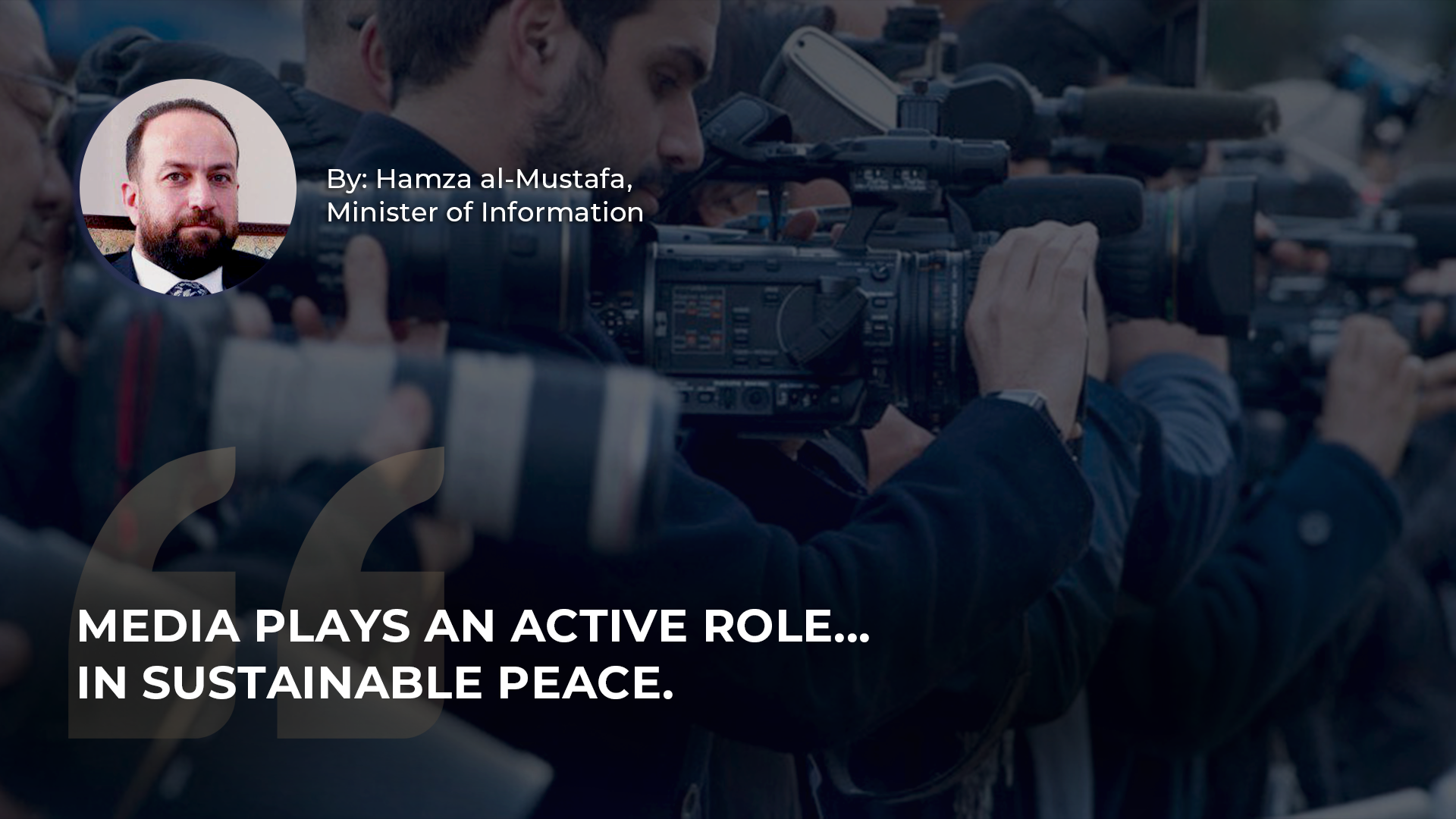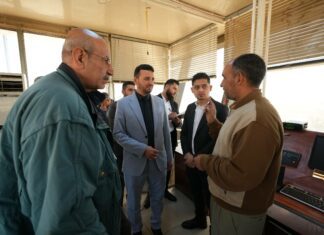By: Hamzah Almustafa

On the occasion of World Press Freedom Day, we are publishing a guest article by Hamzah Almustafa, Syrian Minister of Information. In this piece, Almustafa outlines the challenges and opportunities involved in building a free and independent media landscape following the fall of the Assad regime.
_____________________________
Following the collapse of the Assad regime and decades of state-run media serving as a centralized tool for disinformation and propaganda, Syria is now presented with a unique historical opportunity to initiate a profound and transformative shift in its media landscape.
Nevertheless, it is undeniable that the current media landscape in Syria faces numerous fundamental challenges rooted in the deep legacy of media distortion and institutional decay inherited from the previous regime.
The media institutions that now exist are marked by a significant lack of professionalism and a severe deficiency in the culture of press freedom and editorial independence. Furthermore, populist discourse has become widespread, often serving as a means to manipulate public opinion, rather than promoting the foundational values of dialogue, pluralism, and accountability.
Over the course of fourteen years, the ousted regime systematically institutionalized sectarian rhetoric and demonized the inhabitants of revolutionary-held areas, leading to deep societal rifts. The effects of these divisions are still evident today in the widespread presence of hate speech, exclusion, and sectarianism on social media platforms—dynamics that significantly impede the ability to build a national media environment based on inclusivity, professional standards, and the reestablishment of public confidence.
In response to these challenges, we in the Ministry of Information of the new Syrian government have initiated the development of comprehensive visions and strategies aimed at restructuring state-run media, based on objectivity, framed by a clear legal and ethical framework, including a “Code of Ethics” setting the guidelines for media work without infringing on its freedom of expression.

This initiative now includes a consultative process with local journalists, civil society actors, and unions such as the restructured Syrian Journalists’ Union, which has launched a new regulatory framework with membership requirements aimed at upholding professional integrity and ethical standards.
At the same time, the Ministry seeks to prevent the exploitation of media as a tool for polarization or exacerbating societal divisions. This vision aspires to cultivate a media culture in which criticism is utilized as a constructive tool for reform and the promotion of social cohesion.
As part of this effort, recent meetings with veteran journalists and activists have focused on establishing clear editorial standards, especially concerning sensitive topics such as post-conflict reconciliation, documentation of mass graves, and coverage of former detention centers—issues where some citizen journalists have come under criticism for untrained or unethical reporting.
It is undeniably clear that the path forward remains challenging, and that freedom of expression in Syria remains limited when compared to that in well-established democracies. However, it is essential to view this within a broader perspective.
Syria is currently navigating a challenging transitional phase, taking its initial steps toward political reform. In this regard, it is important to recognize that media freedom is a gradual and evolving process, much like the broader trajectory of political consolidation.
In line with this transitional momentum, the government has shown openness to engaging with media criticism and has demonstrated a clear willingness to expand the space for freedom of expression. This progress is taking place despite the structural biases often associated with state-run media, stemming from its institutional ties to the government and its dependence on public funding.
In the context of fostering a more pluralistic and transparent media environment during this transitional phase, the Ministry of Information demonstrates a strong openness to learning from international expertise, including cooperation in training and development in line with the principles of modern journalism.
For example, the Ministry is currently reviewing joint training proposals with Reporters Without Borders and has opened discussions with the Arab Press Federation regarding standardized press credentials for Syrian journalists abroad.
The Ministry also seeks to establish ongoing communication based on the exchange of perspectives and the formation of effective media partnerships. This includes opening the media landscape to all agencies operating in Syria, and empowering independent and foreign media to fulfill their role in covering events on the ground. We expect these initiatives to foster a more dynamic and informed public discourse, and offer diverse viewpoints, contributing to the shaping of a more inclusive and balanced national narrative.
Under Assad’s rule, Syria ranked among the most perilous environments for journalists, with over 700 media professionals killed as a result of systematic targeting and torture in detention centers. In contrast, the country is now entering a new phase grounded in the belief that a free, independent, and uncensored press constitutes a cornerstone of an effective political transition toward democracy.

Still, several challenges remain. Cases of harassment, editorial interference, and self-censorship have been reported by local journalists since the regime’s fall, particularly when covering sensitive political events like the incidents on the coast in March. These incidents reflect lingering structural habits that must be decisively broken if press freedom is to take root.
Moreover, independent media voices—especially freelancers and citizen journalists—continue to play a crucial role in covering grassroots developments. Many of these journalists previously operated from exile or underground and are now helping to shape Syria’s new media culture, despite facing novel political and professional obstacles in a transitional environment marked by both opportunity and uncertainty.
While the road ahead remains long and fraught with complex challenges, we remain confident in our ability to build a different model in which the media plays an active role in state-building and the advancement of sustainable peace.








